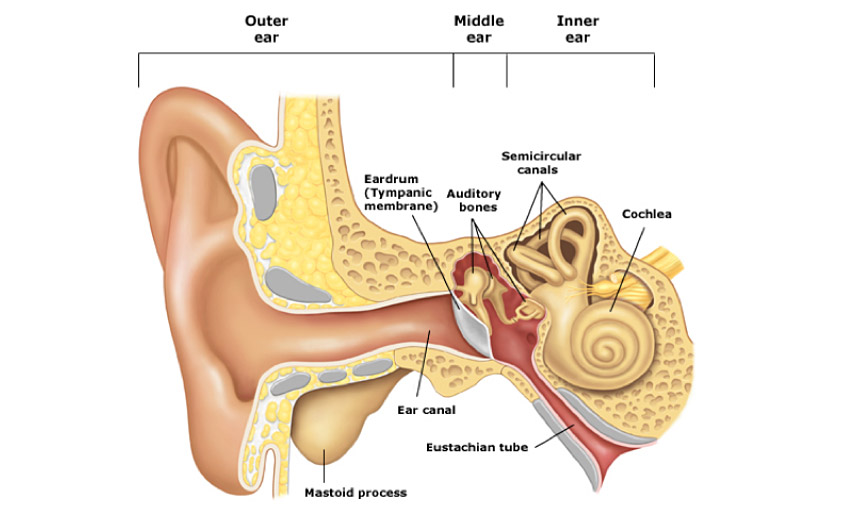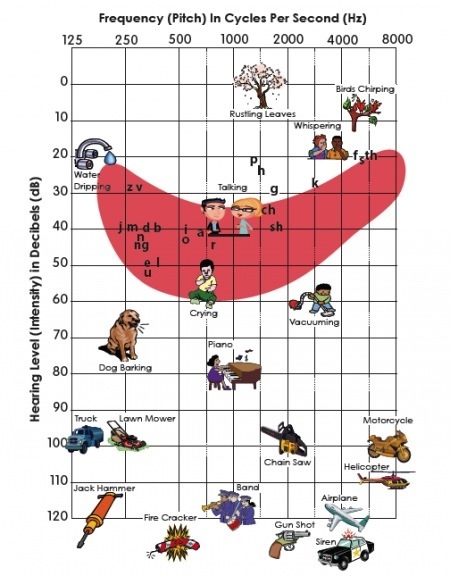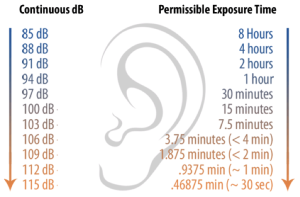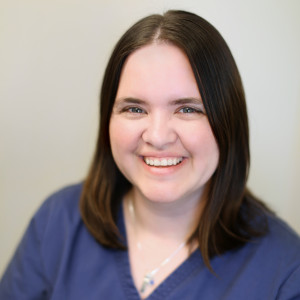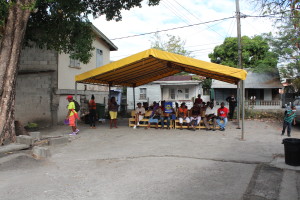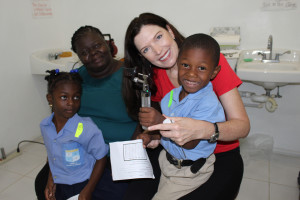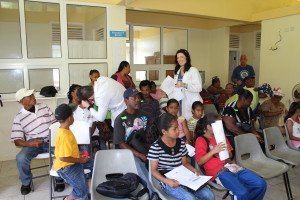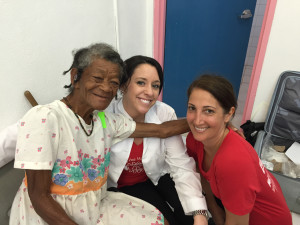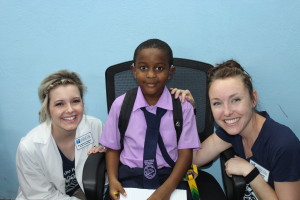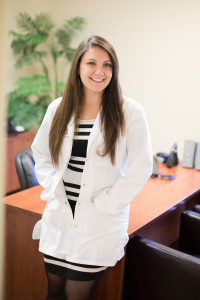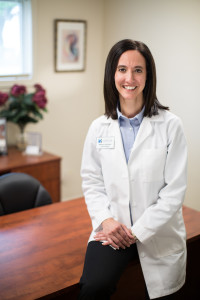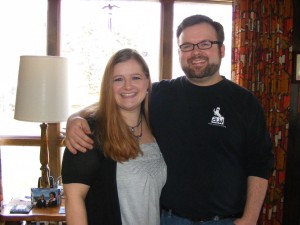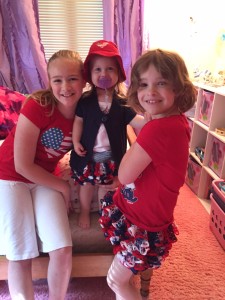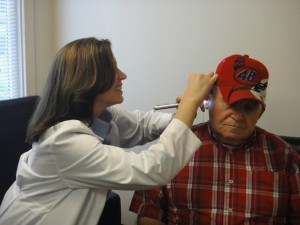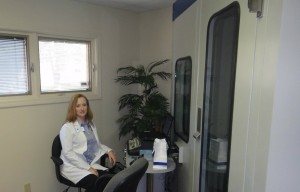Category: Educational
WHAT WAS THAT?
Sep
02
2016

How is it that another summer is already coming to a close? With Labor Day weekend upon us, as well as the colder weather, students are now substituting video games and their freedom for text books and exams. Going back to school can be a difficult transition for anyone let alone someone who is hard of hearing and/or suffers from hearing loss.
A new school year equals new classmates, which, in turn creates various social situations. Whether you are in school, teach our youth, or volunteer, everyone should be aware of the proper etiquette surrounding hearing loss.
Lucky for you, we are here to fill you in on the do’s and do not’s! This can be related to anyone whom you know or may meet that is hard of hearing and/or suffers from hearing loss.
The Do’s and Don’ts of Hearing Loss Etiquette
Do’s:
When you are speaking to someone who is not facing you and does not hear you try to get their attention by saying their name or gently tapping them on the shoulder.
Speak normal! You are not on slow-mo and neither are they. It can be demeaning to sound out every syllable and consonant.
Decrease background noise if possible such as turning off the T.V., radio or simply shutting a door.
Make sure to face the person with whom you are talking with so they are able to read both facial and visual cues.
Decrease the distance between you and your conversation partner. Acoustics travel better and are much louder in a closer range. Try to maintain a distance of at least 3 to 6 feet.
Don’ts:
Repeat. If someone asks you to repeat a statement for the second time, try rephrasing If the person with whom you are communicating with has a hard time understanding what you originally said, rephrasing your thoughts may be a better approach.
Yell! Yelling can distort the sound and make it harder for them to understand you.
Talking to someone who is not in the same room as you are. This is a very difficult approach to getting someone’s attention let alone someone with hearing loss.
Obstruct your mouth when talking. Refrain from chewing, eating and/or covering your mouth when speaking.
Hearing loss is the least talked about, most unrecognized life issue for many. We all must be mindful that it takes people with hearing loss longer to process both speech and sound. Care enough to pay attention to whom you are speaking to and it will go a long way to better communications.
Amanda Meholif, Audiology Aide
Centers for Hearing Care
Posted in Educational, Uncategorized Tagged with: Audiologist, audiologists, Austintown, Boardman, Centers for Hearing Care, Columbiana, Doctor of Audiology, Hearing Aid, Hearing loss personal story, Hearing Missions Foundation, helping the world hear, Howland, Liberty, Pepper Pike, Salem
Listen up… Turn it to the left
Jan
15
2016
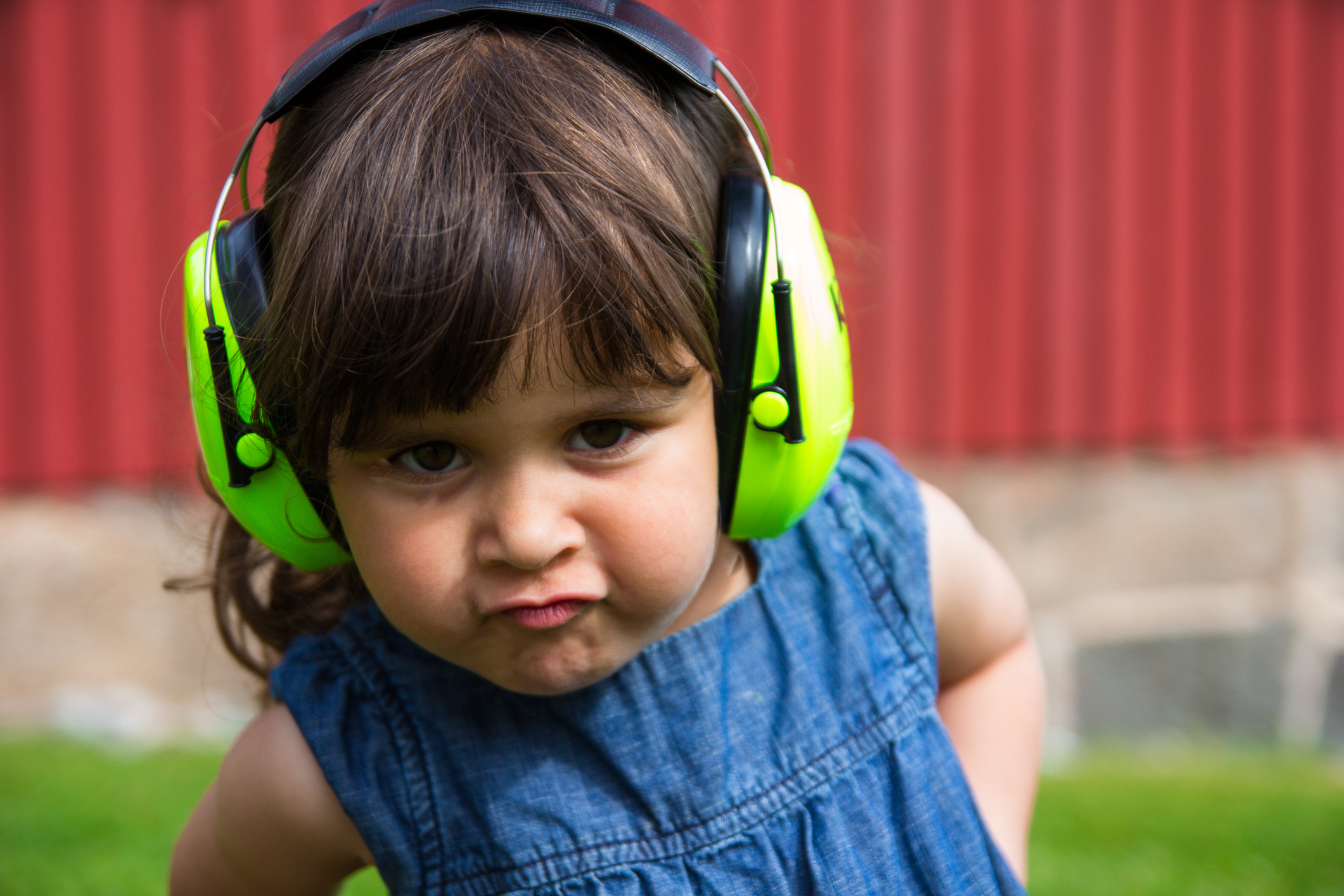
Sensorineural (or permanent) hearing loss can be caused from many factors including: age, genetics, medications (like chemotherapy), and/or other health issues (such as diabetes), just to name a few.
A very common and often overlooked cause of hearing loss, is noise-induced hearing loss.
Noise-induced hearing loss!?!
Yes, that means it is possible that some noises in and around your environment could cause permanent damage to your hearing. In fact, of the approximately 30 million Americans that have hearing loss, 1 in 3 have developed hearing loss due to exposure to noise. Before we continue with more information about noise induced-hearing loss, let’s back up and talk about how the hearing process works.
Sound is funneled into the ear canal from the Pinna (outer ear) and travels down the ear canal to the eardrum.
When sound hit the eardrum it is turned into vibrations and those vibrations move the three ossicles, which are the tiniest bones in the body (the malleus, incus, and stapes). The moving vibrations continue to where they then push on the inner ear (the oval window of cochlea, to be exact), moving the fluid inside. This fluid movement inside the organ of hearing moves the hair cells, which trigger a neural pulse that travels to your brain and tells your brain you have heard something.
With exposure to noise and loud sounds, those hair cells, that are vital to our hearing system, begin to break down. In turn, sounds need to be louder to get those damaged hair cells to fire the neural pulse that travels up to the brain. This is hearing loss!
The Human ear can hear pitches of sound from as low as 20 Hz to as high as 20,000 Hz. The range of normal hearing is anything at 25 dB or softer in terms of volume. Generally, 0 dB is regarded as the threshold of hearing. Sounds in our environment vary in pitch and in loudness. Take a look at the audiogram below to get an idea of where some of our familiar sounds fall on the scale of pitch and loudness. (The letters show us where each letter of the alphabet falls on an audiogram) :
Here’s another way of viewing a loudness scale of sounds in our environment:
Keep in mind the average conversational speech takes place at about 60 decibels. Once sounds become as loud as 85 dB, they can cause permanent damage to your hearing. The louder the sound becomes, the quicker damage to our ears can occur. Take a look at these standards set by NIOSH and the CDC in 2002. The quick rule: for every additional 3 dB over 85 dB, subtract half the time before damage can occur.
Concerned for damage to your hearing from noise?
It may be time to visit the Centers For Hearing Care office nearest you for a diagnostic hearing evaluation if:
You have recently been around loud or harmful noises
Your hearing seems muffled after exposure to noise
You are currently experiencing tinnitus (ringing in the ears)
Now that we have talked about the bad news, the damage,
let’s talk about the good news, PREVENTION!
Noise-induced hearing loss can be prevented and here is how:
Protect yourself from harmful sounds! A harmful sound is one that is too loud and lasts too long OR is very loud and sudden. Some examples of harmful sounds are:
Lawn mowers
MP3 players and iPods at full volume
Concerts
Car races
Sporting events
Jet engines
Gunshots
Fireworks
Wearing hearing protection while you are around harmful sounds helps prevent noise-induced hearing loss. Some examples of hearing protection are:
Turning down the volume when listening to TV, music, etc. through headphones or ear buds
Simply walking away from the noise and getting yourself out of that environment
Foam ear plugs (can be found at sporting goods store, CVS/Walgreens)
Ear muffs (can be purchased at hardware store, sporting goods store, etc.)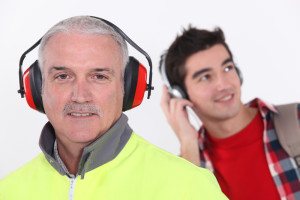
Custom made ear plugs (can be made by and purchased at your nearest CFHC office). Everyday wear especially for Musicians, Hunters and Shooters, Industrial Workers, and Police/Military.
So, do you still have the urge to blast your music?!?
Think of this song before you do!…
https://www.youtube.com/watch?v=kLSYq5kau_w
Want more information?
Check out these great websites that have been great references for this post:
http://www.dangerousdecibels.org/
http://www.turnittotheleft.org/
By:
Lauren L. Thomas, AuD., CCC-A
Doctor of Audiology
Centers for Hearing Care Austintown
Posted in Educational Tagged with: Audiogram, Audiologist, audiologists, audiology, Austintown, Behind the ear hearing aids, Boardman, BTE hearing aids, car races, Centers for Hearing Care, chemotheraphy, Cleveland, Columbiana, Columbiana County, concerts, dangerous decibels, decibels, Dementia, Dementia and Hearing Loss, diabetes, digital aids with Bluetooth technology, Doctor of Audiology, Dr. Sheryl Figliano, ear buds, Ear Muffs, eardrum, exposure lound sounds, Figliano, fireworks, foam ear plugs, gunshots, hard of hearing, harmful noises, hear aids, Hearing Aid, Hearing Aid Center, Hearing Aids, hearing center, hearing devices, hearing doctor, hearing impaired, hearing loss, Hearing Missions Foundation, hearing protection, hearing tests, hearingaids, helping the world hear, Howland, iphone, jet engines, lawn mowers, Liberty, Mahoning County, medications, mp3 players, music streaming, noise induced hearing loss, Northeast Ohio, Ohio, Pepper Pike, pitches of sound, progressive sensorineural hearing loss, ringing in ears, ringing in the ears, Salem, severe sensorineural loss, sporting events, tinnitus, tinnitus treatment, Trumbull County, turn it to the left, turn it to the left song, Youngstown
Dementia and Hearing Loss
Dec
31
2015

There are many common health concerns linked with hearing loss. One of the biggest concerns as we age is dementia. According to a study done by Johns Hopkins University of Medicine, older adults with hearing loss have an increased risk of “dementia, falls, hospitalizations, and diminished physical and mental health overall” (Resnick, S., et al., 2014).
Dr. Frank Lin at Johns Hopkins University of Medicine makes it a point to address treating hearing loss sooner rather than later as it contributes to these other major health concerns (Resnick, S., et al., 2014).
On average, it takes a person 5-7 years after they notice their hearing loss to get hearing aids. Your choice to get hearing aids earlier in life when you need them can have a huge impact on the quality of your life going forward. This includes improving your chances of not having dementia or a cognitive decline. Better hearing also leads to a slower process of brain shrinkage, which is a normal part of aging.
Make the choice today,
while you are still able to do so for yourself.
Choose to hear, choose to live a higher quality of life,
choose to be there for your loved ones!
Resnick, S., et al. (2014). Hearing Loss Linked to Accelerated Brain Tissue Loss. Johns Hopkins Medicine. Available: http://www.hopkinsmedicine.org/news/media/releases/hearing_loss_linked_to_accelerated_brain_tissue_loss_.
Written by: Crystal Lewis
Patient Care Coordinator
Centers For Hearing Care
Crystal is a key member of our patient outreach and operations staff here at Centers for Hearing Care. She holds a strong educational and research background in the sciences and medicine. A graduate of the University of Nebraska with a Master’s of Science in Biology with an emphasis on Anatomy and Physiology. She graduated from Youngstown State University with a Bachelor of Science degree in Biology and Pre-Medicine and a minor in Chemistry, where she did research in a hypertension laboratory. Crystal also spent some time as an undergraduate researcher working in Akron Children’s Hospital Emergency Department.
Posted in Educational Tagged with: Audiologist, audiologists, audiology, Austintown, Behind the ear hearing aids, Boardman, BTE hearing aids, Centers for Hearing Care, Cleveland, Columbiana, Columbiana County, Dementia, Dementia and Hearing Loss, digital aids with Bluetooth technology, Doctor of Audiology, Dr. Frank Lin, Dr. Sheryl Figliano, Figliano, hard of hearing, hear aids, Hearing Aid, Hearing Aid Center, Hearing Aids, hearing center, hearing devices, hearing doctor, hearing impaired, hearing loss, Hearing Loss Linked to Accelerated Brain Tissue Loss, Hearing loss personal story, Hearing Missions Foundation, hearing tests, hearingaids, helping the world hear, Howland, iphone, Johns Hopkins Medicine, Liberty, Mahoning County, music streaming, Northeast Ohio, Ohio, Pepper Pike, progressive sensorineural hearing loss, Rebecca Donchess, Resnick, ringing in ears, ringing in the ears, Salem, severe sensorineural loss, tinnitus, tinnitus treatment, Trumbull County, Youngstown
Missions to Dominica
Oct
28
2015

Over the past 4 years, members of the Centers for Hearing Care and Rotarians from District 6650 have established a hearing mission to the Common Wealth of Dominica. This trip began in 2011 when Dr. Sheryl Figliano of the Centers for Hearing Care came in contact with Dr. Susan Kelly, professor at Ross Medical University in Dominica. They connected through a common passion of helping people. They reached out to Marvlyn Birmingham, President of the Rotary Club of Dominica at that time, to join in their efforts. We continue to work with Rotary for trips to Dominica as well as Hearing Missions Foundation which is a 501 (c)(3) non-profit affiliate of Centers for Hearing Care.
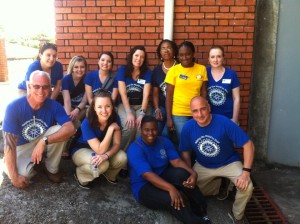
ABOUT DOMINICA

Prior to our arrival there was limited access to hearing services on the island. Our first visit to the island, we tested over 500 children and adults and fit well over 200 individuals within one week! As the team continues this annual mission, more islanders have become aware of the program and are informed ahead of time when we are coming so they know which clinic we will serve on which days. Each day we move to a different part of the island.
WHAT WE DO
Clinic is started around 8am and continues until each person is seen. Sometimes our day doesn’t end until 9 :00 in the evening. By the time we arrive, a line has already formed of individuals awaiting services. Some must begin their morning at 5am and travel hours to make it to our location. Our team is then divided into groups and a triage team starts sending individuals to the appropriate station. The services we provide are hearing tests, ear cleaning, fitting of amplification and repairing hearing aids for those we have fit during missions in previous years.
Children are immediately pulled to the front of the line and are always seen first. It is very important to us to fit each child with hearing impairment with 2 hearing aids. The younger an individual is fit with the hearing aid the better their brain will adapt to the incoming sound and make sense of it. The longer a child goes with undetected hearing loss, the farther behind they fall in school and the less likely they are to catch up to their peers. In order for children to learn, they need to hear lectures, participate in conversations to learn social skills, and connect with their family members.
SUCCESS = SUSTAINABILITY
What makes our program successful is establishing sustainability. Since the beginning we have been training individuals on the island, chosen by their government, to work with our patients after we have departed for the U.S. Shirlina, our main technician, is able to service their hearing aids, hand out batteries, and contact us when more supplies are needed. When an individual is fit, they are given Shirlina’s contact information for help. Without sustainability, our program would be short-lived. If a hearing aid were to break, that patient would have to wait until our team returned the following year and would be without proper amplification. Having a contact on the island allows us to send them batteries when needed. For the island, a hearing aid battery can cost up to $10. With minimum wage so low, it is hard on families to purchase batteries which can leave a child without amplification during the school year.
At the end of the trip the audiology team attends Ross Medical University, a medical school on the island. There, the medical students are taught about the auditory system by both a lecture and hands-on clinic.
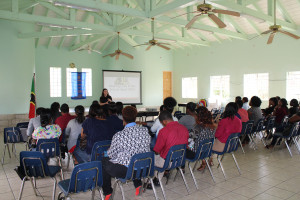
OUR MISSION IN ACTION
Our mission to give the gift of hearing to the islanders of Dominica is continually growing. Now, thanks to generous donations, the island has multiple audiometers and a screening program is being implemented in some of the schools. Considering no hearing serviced were provided prior to our arrival, this is a large step. We continue to go establish sustainability and to help the hearing program grow.
Participating in a mission trip is a humbling experience. Giving the gift of hearing to someone who could not otherwise have access is rewarding. We have seen mothers watch their children as they hear them for the first time, taught others to say their first word as they now hear their own voice. We have given children the opportunity to succeed in school and adults the ability to participate in conversation again.
The Hearing Missions Foundation is planning another trip to Dominica in March 2016! For more information about making a positive difference in the lives of so many please visit…
www.hearingmissions.org
WHAT CAN YOU DO??
Spread the word, donate hearing aids, give monetary gifts, host fundraisers, and join us on a mission!
Written by: Dr. Elizabeth Shobel
(Hearing Missions Foundation Volunteer and Board Member)
Posted in Educational, Hearing Missions Foundation Tagged with: 501c3, Audiologist, audiologists, audiology, Austintown, Behind the ear hearing aids, Boardman, Boardman Rotary, BTE hearing aids, Centers for Hearing Care, Cleveland, Columbiana, Columbiana County, digital aids with Bluetooth technology, Doctor of Audiology, Dominica, dr. elizabeth shobel, Dr. Sheryl Figliano, Figliano, hard of hearing, hear aids, Hearing Aid, Hearing Aid Center, Hearing Aids, hearing center, hearing devices, hearing doctor, hearing impaired, hearing loss, Hearing loss personal story, Hearing Missions Foundation, hearing tests, hearingaids, helping the world hear, Howland, iphone, Liberty, Mahoning County, Marvlyn Birminghan, music streaming, non-profit, Northeast Ohio, Ohio, Pepper Pike, progressive sensorineural hearing loss, ringing in ears, ringing in the ears, Ross University, Rotarian, Rotary International, Rotary of Plain Township, Salem, severe sensorineural loss, tinnitus, tinnitus treatment, Trumbull County, West Indies, Youngstown, Youngstown Rotary
“Why Do I Need to Bring Someone With Me?”
Sep
08
2015

When scheduling an appointment for a hearing evaluation in our office, you will be asked to bring a family member/friend with you. Many of our patients ask, “Why do I need to bring someone with me?”
WHY IS IT IMPORTANT TO BRING SOMEONE WITH YOU TO YOUR HEARING EVALUATION?
The initial visit of performing a hearing evaluation is an essential first step in the process of assessing your hearing needs. At this appointment, we will be conducting a thorough case history of your hearing. Often times, your family/friends can help answer these questions or add additional information pertinent to your needs.
Next, we will be performing the hearing evaluation. This evaluation serves as the prescription for your hearing. It will not only diagnose a hearing loss, but also tell us the proper treatment. When a permanent hearing loss is found, amplification (hearing aids) are the recommended treatment.
When choosing which amplification device is appropriate for you, your family member/friends can help you decide. We will take things into account such as your lifestyle, budget, cosmetics of the hearing device, along with dexterity and visual acuity issues.
Once your hearing devices are ordered and received in our office, you will return for your fitting appointment. Once again, bring your family member/friend with you to this appointment. We will sit down and go through a class showing you the proper way to insert/remove your hearing devices, care for your hearing devices, and counsel you and your family member/friend on communication strategies to get the best performance with your hearing devices.
So as you can see, this process truly is a team effort. The audiologist, patient, and family member/friend all play a key role in determining the best path to be taken to achieve better hearing.
By: Rebecca Donchess, M.A., CCC-A
Licensed Audiologist
Posted in Educational Tagged with: Audiologist, Austintown, Behind the ear hearing aids, Boardman, BTE hearing aids, Centers for Hearing Care, Cleveland, Columbiana, Columbiana County, digital aids with Bluetooth technology, Doctor of Audiology, Dr. Sheryl Figliano, Figliano, Hearing Aid, Hearing Aid Center, Hearing Aids, hearing loss, Hearing loss personal story, Hearing Missions Foundation, helping the world hear, Howland, iphone, Liberty, Mahoning County, music streaming, Northeast Ohio, Ohio, Pepper Pike, progressive sensorineural hearing loss, Rebecca Donchess, Salem, severe sensorineural loss, Trumbull County, Youngstown
Julie’s Story
Sep
01
2015

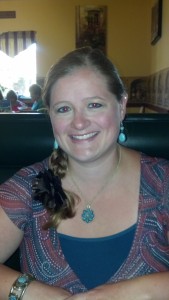 One thing I have always struggled with in accepting myself is my hearing loss. I have had a progressive sensorineural hearing loss in both ears since the age of 3. I started having chronic ear infections at the age of 6 months old. I had PE tubes in my ears eight times from age 1-8. Due to all the fluid in my ears, the doctors were not sure I had permanent hearing loss until I was 4 or 5 years old, and my loss was a mild high frequency loss at that age. I got my first pair of hearing aids when I was 6 and I would hide them behind my hair. They were a pair of Phonak, in-the-ear, analog hearing aids (you know, the ones that when you turned up the volume wheel, ALL the frequencies got louder, even the ones where I had no hearing loss!). I was in the first grade and every time I got feedback in my hearing aids, my teacher would say, “Oh we must have a little birdie in here!” I was thoroughly embarrassed.
One thing I have always struggled with in accepting myself is my hearing loss. I have had a progressive sensorineural hearing loss in both ears since the age of 3. I started having chronic ear infections at the age of 6 months old. I had PE tubes in my ears eight times from age 1-8. Due to all the fluid in my ears, the doctors were not sure I had permanent hearing loss until I was 4 or 5 years old, and my loss was a mild high frequency loss at that age. I got my first pair of hearing aids when I was 6 and I would hide them behind my hair. They were a pair of Phonak, in-the-ear, analog hearing aids (you know, the ones that when you turned up the volume wheel, ALL the frequencies got louder, even the ones where I had no hearing loss!). I was in the first grade and every time I got feedback in my hearing aids, my teacher would say, “Oh we must have a little birdie in here!” I was thoroughly embarrassed.
Having a hearing loss is something that I did not like about myself growing up. I was the only one in my school with hearing loss. Some kids teased me and made fun of me. Sometimes they would pretend to talk to me but no sound would come out of their mouth. I was not fooled, nor was I amused. Other times they would come up behind me and cup my ears to make my hearing aids squeal. As I got older and was in middle school, my loss progressed across all frequencies to a moderate hearing loss. I got my first pair of behind-the ear hearing aids and even had an FM system to use in the classroom to help me hear my teachers. I had to work so much harder at focusing and listening in the classroom because it was so difficult to hear, even with hearing aids. It was exhausting, and I came home from school many days in my earlier years crying and would take a nap. I also felt like a fool when I would hear something incorrectly and give an answer that had nothing to do with what we were talking about. I did not accept this part of myself and questioned why God would create me this way. I prayed for God to heal my ears daily. I wanted so bad as a child to be normal and be considered normal by other children rather than that girl that can’t hear. I rejected this part of myself so much that I refused to learn sign language as a child because I did not want to be seen as “deaf”.
Even so, I delved into my studies, sports and extra-curriculars. I was determined to show my teachers and peers that I was not any less of a person or student even though I had a disability. I surpassed many of my classmates in all that I was involved in. I was a wonderful flute player in band and sat first chair in concert band in high school. I was successful in track, cross country, and swim team all throughout high school. I graduated with a 4.0 and went on to college to achieve a Bachelor’s of Science in Hearing, Speech & Language Sciences (3.4 GPA), post graduate work in Audiology and later in my life, a Masters of Arts in Teaching (4.0 GPA).
In college and mid-twenties, my loss progressed even more to a severe sensorineural loss across the frequencies. I had to order power BTE hearing aids now, and I still felt like I had trouble hearing. I have always feared that eventually I will reach an age where I will be deaf, and I felt like my fear was slowly becoming a reality. I was just beginning my family, and I worried that I wouldn’t be able to hear my baby cry when she would wake up, hear when she called for me or spoke her first words. I had met Dr. Figliano a year earlier, and decided to call the Centers for Hearing Care and make an appointment.
The care and services I received at the Centers for Hearing Care have been above and beyond the care and services I received at any other hearing aid providers. All of the staff are kind and courteous and the doctors are extremely knowledgable, patient, and determined to find the hearing aid that best suits the needs of the patients. Also, free batteries and cleanings for the life of my hearing aids (5 years!!!)! I have not received services like this elsewhere! Dr. Figliano help me pick a great pair of hearing aids that gave me enough amplification and clarity of sounds. I heard my babies when they cried and spoke their first words.
Dr. Shobel helped me pick and program my most recent pair of hearing aids. The technology has changed so much! This is my first pair of fully digital aids with Bluetooth technology. Phone calls and music from my iPhone stream directly into my hearing aids. It has changed my quality of life in several ways. First, I do not dread receiving a phone call. I do not get embarrassed now on phone calls, because I do not have to ask them to repeat over and over. I can hear the person talking and my hearing aids reduce other sounds around me. Second, I hear music in a whole new way. It’s almost like I was not hearing the full spectrum of sounds from instruments and voices before. Music has always been very beautiful to me, but the first time I heard music through my new hearing aids I cried. Finally, my new hearing aids have shown me that I was not hearing soft consonant sounds of speech. I think this was something that I gradually lost as my hearing changed over the past 10 years. Now I can hear people pronouncing the “S “sound, the “T “sound, the “ch” sound and the “sh” sound. That makes a huge difference in discriminating speech! I can even hear myself making these sounds and I realize I hadn’t heard myself say those sounds in a long time. It took me 4 to 5 weeks to get used to hearing everything new with my new hearing aids, but it was worth it!
It took me a long time to realize that other people did not look at me as a disabled person. They looked at me as a normal person. I was the one that saw myself as disabled. It took me a long time to come to a point where I fully accepted that this is who I am. This is how God created me and I am okay with that. I don’t need my ears to be healed to accept myself. And I don’t need my ears to be healed for me to experience a full life. I could have very easily taken a different path in my life succumbing to my fears and insecurities, but I continually choose to overcome this. I graduated high school, went on to college and even graduate school. I’ve held really great jobs. I got married and had children. I didn’t let it hold me back. I still get overcome with anxiety and worry every time I have my annual hearing test, but then I always feel encouraged knowing that I have great doctors at the Centers for Hearing Care who support me and always make sure I have good working aids that help me experience a full quality life!
–Julie Larson
Posted in Educational, Personal Stories Tagged with: Audiologist, Austintown, Behind the ear hearing aids, Boardman, BTE hearing aids, Centers for Hearing Care, Cleveland, Columbiana, Columbiana County, digital aids with Bluetooth technology, Doctor of Audiology, dr. shobel, Figliano, Hearing Aid, Hearing Aid Center, Hearing Aids, hearing loss, Hearing loss personal story, Hearing Missions Foundation, helping the world hear, Howland, iphone, Liberty, Mahoning County, music streaming, Northeast Ohio, Ohio, Pepper Pike, progressive sensorineural hearing loss, Salem, severe sensorineural loss, Trumbull County, Youngstown
Should I Wear Ear Plugs this Weekend???
Jul
03
2015
by Stefanie Adams, Community Relations Coordinator
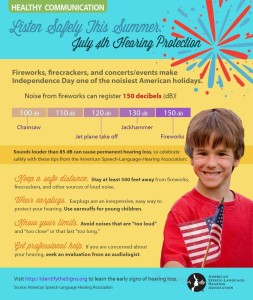
Honestly, I have to admit this Independence Day will be the first time I have considered if my family and I should wear ear plugs. (Brief pause for Audiologists gasping. haha) I am a new team member at Centers for Hearing Care and I am learning an incredible amount from our fantastic staff, including that much of what I thought I knew about hearing in general is wrong! Yes, I admit it, WRONG! There are many causes of hearing loss to which I had no idea about, as well as the effects untreated hearing loss can have on someone. Actually, I could go on and on about all the things that have amazed me since I started here, but I will save it for another blog post.
Seriously, I know fireworks are loud, but earplugs and earmuffs? Really?????
I can now tell you the research shows a resounding YES!!!!!
I used to see parents who had their children wearing earmuffs to watch fireworks and would think, “Good for them for being overly cautious! It isn’t that big of a deal though, and I’m not “THAT kind of Mom” who sweats the small stuff (especially with three kids and the youngest of these being two crazy boys)!” Now I realize, the only nonsensical thing is that the parents weren’t protecting their ears as well!
We DON’T reach an age where our hearing is no longer affected by loud sounds and we certainly NEVER reach an age where our hearing isn’t important and greatly affecting the quality of our lives! Therefore, ear plugs and ear muffs may not be fashionable, however, if you ask me, I would definitely rather spend 20 min wearing them and being “THAT Mom” that makes her family wear them too, then the rest of my life wishing I had!
Please celebrate safely with your loved ones this holiday weekend and every day! 🙂
Below is some of the information I had no idea about….
HAVE YOU HEARD????
Sounds louder than 85db can cause PERMANENT hearing loss.
For a point of reference, here are some common summer sounds and their decibel (dB) levels:
- Rustling leaves: 10 dB
- A whisper: 30 dB
- Humming of a fridge: 40 dB
- A conversation: 60 dB
- Busy street traffic: 70 dB
- Vacuum cleaner: 80 dB
- Lawn mower: 90 dB
And now … how fireworks and other loud noises measure up:
- Fireworks for spectators at 800 feet away: 88 to 126 dB
- Fireworks at 3 feet away: 150 dB
- Chainsaw: 100 dB
- Front row of a rock concert, Maximum output of some MP3 players: 110 dB
- Jet plane take off: 120 dB
- Jackhammer: 130 dB
- Motorcycles, firearms, small firearms: 120 to 150 dB
Posted in Educational Tagged with: adults ear plugs, American Speech-Language-Hearing Association, Austintown, Boardman, Centers for Hearing Care, Columbiana, Columbiana County, Ear Muffs, Ear Plugs, fireworks, fireworks damage hearing, Hearing Aid, Hearing Aid Center, Hearing Aids, hearing loss, Hearing Missions Foundation, Howland, kids wearing ear muffs, Liberty, Mahoning County, Northeast Ohio, Pepper Pike, Permanent hearing loss, sound decibals, times to wear ear plugs, Trumbull County, Youngstown
WHAT TO EXPECT
Jun
23
2015
 by Dr. Ashley (Vandlik) Zifer
by Dr. Ashley (Vandlik) Zifer
Do I have a hearing loss or does everyone just mumble?
The most common type of hearing loss greatly effects clarity of speech. You can hear that someone is talking but making out exactly what was said is difficult with this type of hearing loss. Individuals with undiagnosed hearing loss have the perception that “everyone mumbles” when in fact they are experiencing symptoms of a hearing impairment. Other symptoms of hearing loss include turning up the television, asking others to repeat, difficulty hearing speech in background noise, social withdrawal, or tinnitus. If you or your loved one experience any of these symptoms, it’s essential to have your hearing evaluated. You don’t know what you’ve been missing…..
At Centers for Hearing Care, we pride ourselves in quality patient care. You are always greeted with a smile and treated as if you are a member of our family. Our locations are easily accessible and our schedules are set up to allow for extra time with patients.
During your visit, the audiologist will start by looking in your ears to determine if your hearing problem is potentially caused by conditions in the ear canal (such as wax buildup, ear infection, or foreign object).
The next step is a hearing evaluation. This evaluation, performed by the audiologist, is a painless procedure taken place in a soundproof booth for accurate test results. Throughout the test, you are instructed to listen for very soft beeps at low and high pitches. In addition, the audiologist will test your ability to understand words.
After the evaluation is complete we will explain the science of how hearing works, review the results of your test, and discuss treatment options.
It’s time to reconnect with the world. Being diagnosed with a hearing loss can be shocking for some, especially when the treatment option is to wear hearing aids. This diagnosis is commonly perceived as “getting old” or the thought of wearing a hearing aid can be embarrassing. Isn’t it more embarrassing to always ask others to repeat or inappropriately answer questions because you didn’t hear what was said? Hearing aids have come a long way in style, size, price and technology over the years. If you are a hearing aid candidate, the audiologist will take into consideration your cosmetic, financial, and technology needs to find a product that is perfect for you.
The benefits of wearing a hearing aid are endless. A research study of over 2,000 people found that individuals who wear hearing aids noted significant improvements in many areas in their life including more independence, better relationships at home, and increased attendance to social events. The best part of it all—most hearing aids are so tiny that no one even has to know you are wearing one!
It’s time to take the step towards improving your quality of life! You deserve to take the step towards better hearing. Centers for Hearing Care is here to help you.
Posted in Educational Tagged with: Audiologist, Austintown, Boardman, Centers for Hearing Care, Doctor of Audiology, ear infection, ear wax, Hearing Aid, Hearing Aids, hearing evaluation, hearing loss, hearing problem, Liberty, Northeast Ohio, Ohio, Pepper Pike, Salem, tinnitus, wax buildup, What to expect with hearing loss, Youngstown
